

August 30, 2021
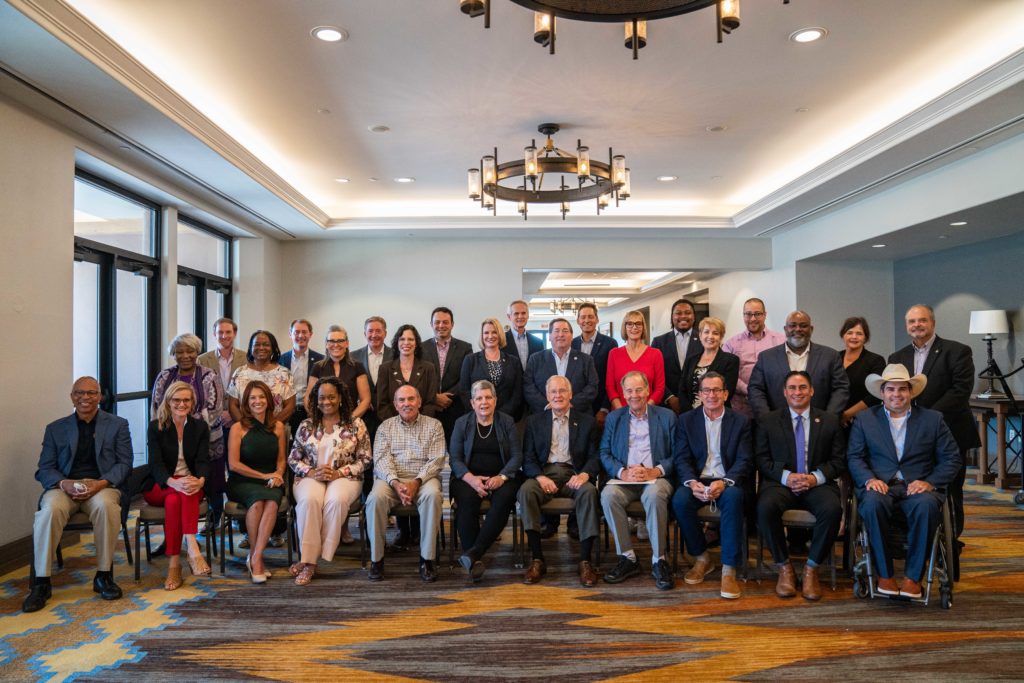
Cohorts 6 & 7 of our Hunt-Kean Leadership Fellows
After going virtual for last year’s Hunt-Kean Leadership Fellows convenings, we were excited to bring together Cohorts 6 & 7 of our Fellows — education-minded state policymakers — for three days of education policy discussion in New Mexico.
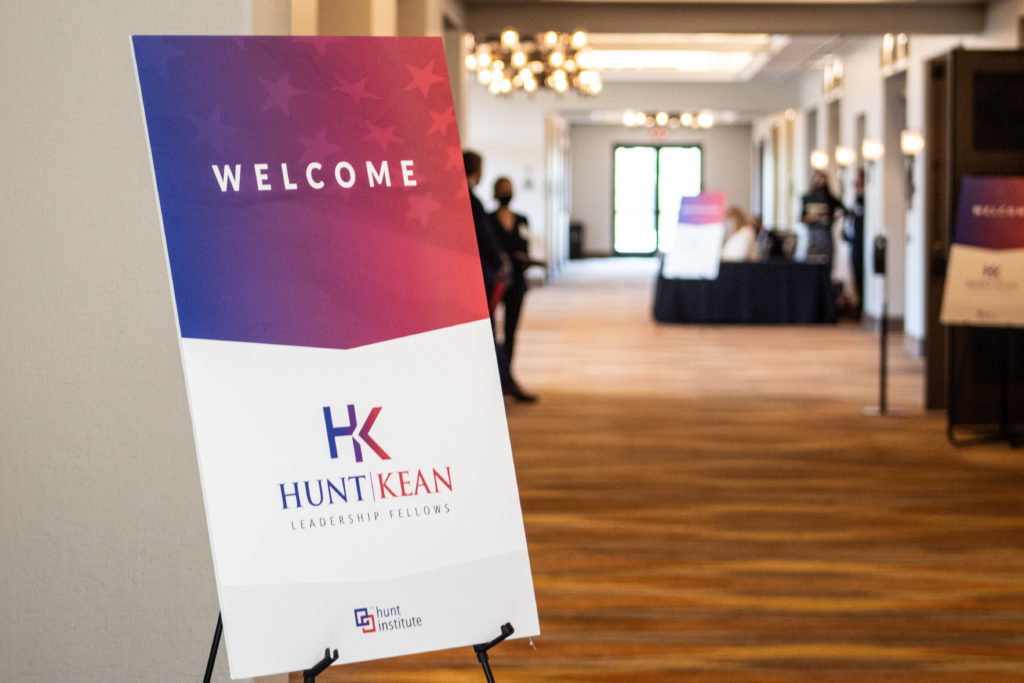
The Hunt Institute team welcomed Hunt-Kean Leadership Fellows and staff to the convening.
In the dry desert heat outside of Albuquerque, New Mexico — in the Santa Ana Pueblo — our Hunt-Kean Leadership Fellows and their staff arrived for a workshop-type experience to learn about a wide range of issues facing the education continuum.
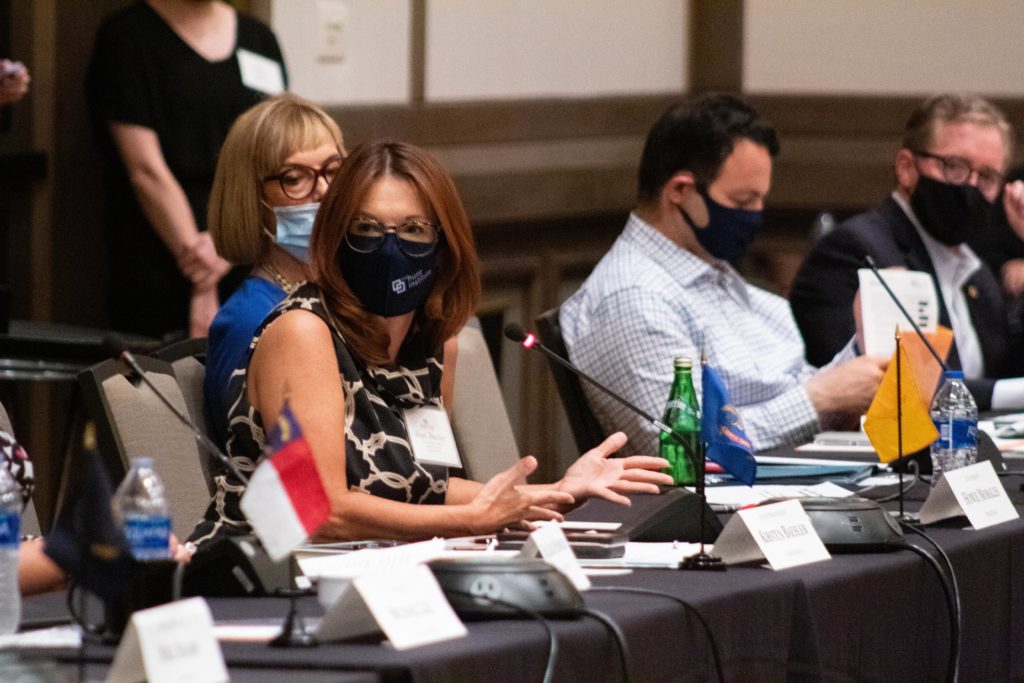
North Dakota Superintendent of Public Instruction Kirsten Baesler asks panelists a question during discussion time.
Policymakers jumped right into education policy on the first day of the Hunt-Kean Leadership Fellows convening. Dr. Richard Ingersoll, renowned professor of education and sociology at University of Pennsylvania, described attrition rates in the teacher workforce and the dramatic increase in the ratio of beginning teachers to veterans. He pointed out that multi-faceted accountability measures that take into account the nuances of teaching, could help teachers, especially those just beginning their teaching journey.
Fellows heard from a local voice – Dr. Ryan Stewart, New Mexico’s former secretary of education. He echoed Dr. Ingersoll’s thoughts on helping teachers get from “point A to point B,” stating that New Mexico relies on three pillars to accomplish this: recruitment, compensation, and professional development.
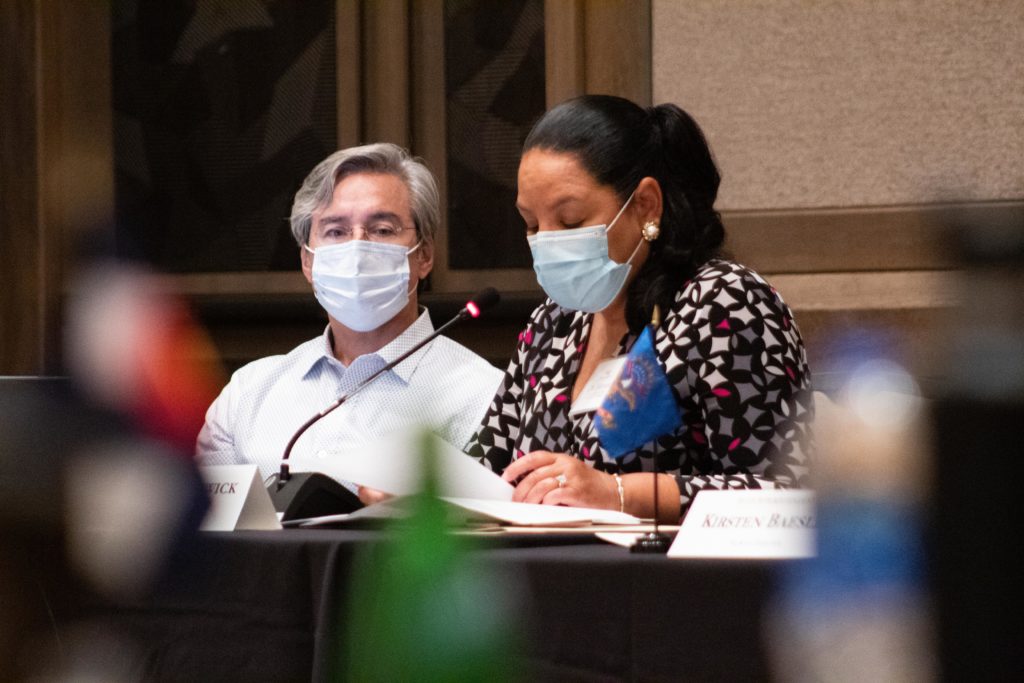
Dr. Leslie Fenwick, Dean Emerita of the Howard University School of Education and North Carolina Senator Michael Lee
In the afternoon, Hunt-Kean Leadership Fellows learned why a high-quality, diverse educator workforce really matters. During conversations on high-quality teachers, Dr. Leslie Fenwick, dean emerita of the Howard University School of Education, cut to the chase: “How can we continue to educationally malnourish our students, raising the bar on what they’re expected to know, but lower the standards for the adults who teach them?”
Dr. Tequilla Brownie, executive vice president of strategy, policy, and community coalitions at TNTP, started off our teacher diversity conversation, explaining that it’s not something that falls into the “nice to have category.” Students show real progress when they have a teacher who looks like them – they are also 32% more likely to attend college when taught by someone of a similar background. Dr. Cassandra Herring, president & CEO of Branch Alliance for Educator Diversity (BranchEd), backed up Dr. Brownie, recalling that in her own life, the assumptions and perspectives of the adults around her at school impacted the way she felt and thought about herself.
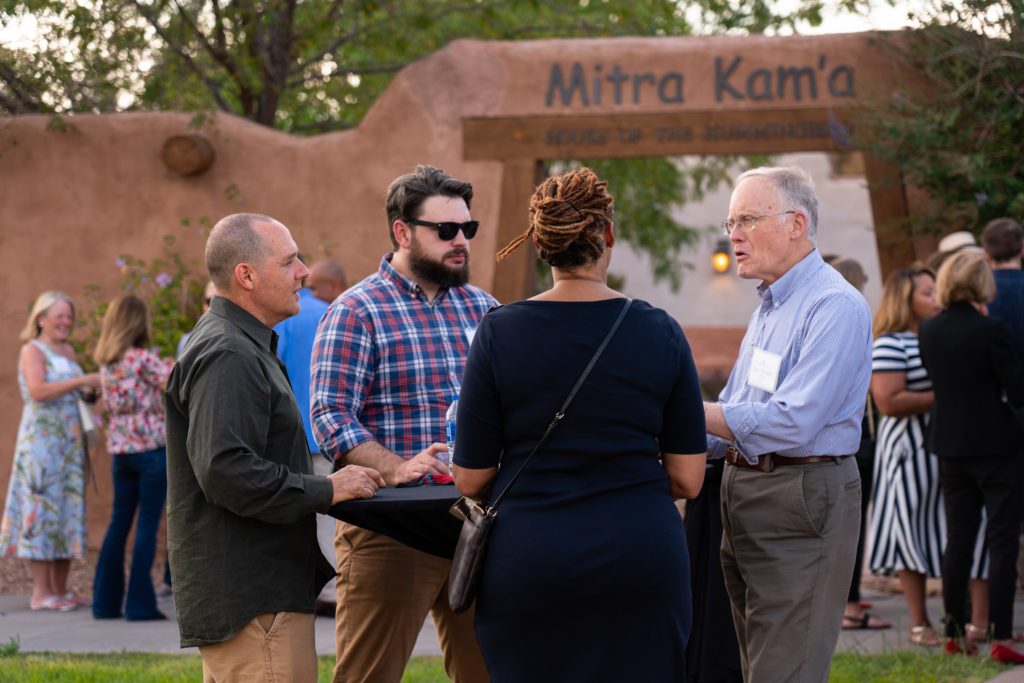
Governor Jim Douglas (VT) talks with a group before dinner.
After the first day of discussions, Fellows attended a reception and dinner to get to network and get to know each other more.
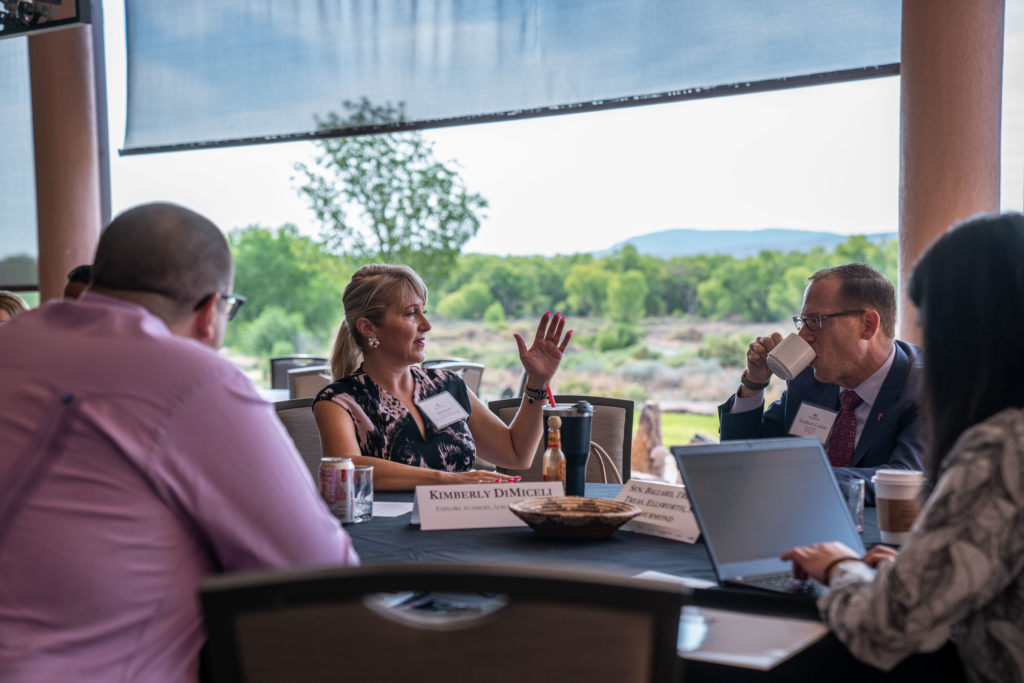
State Auditor Brian Colón (NM) and Senator Gustavo Rivera (NY) listen to Kimberly DiMiceli from Explore Academy.
Before our Fellows began their sessions on Thursday, they sat down for breakfast with teachers and school leaders from across the country. Hearing from teachers with different backgrounds and experiences helped our Fellows better connect to the education field and understand the most pressing issues facing students, teachers, administrators, and families.
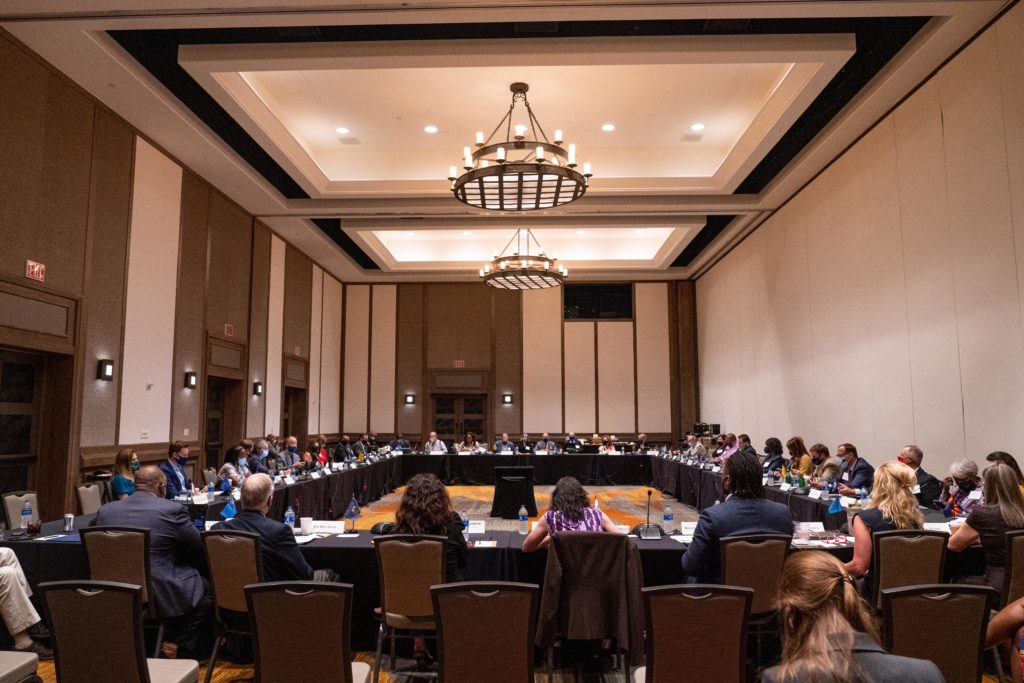
Cohorts 6 and 7 listen to education leaders.
Our second morning began with more K-12 conversations. During a conversation on teacher evaluation, Laurie Sztejnberg, director of research at the Overdeck Family Foundation, mentioned TNTP’s 2009 report, The Widget Effect. The innovative report revealed that teachers, instead of being treated as professionals, are too often treated as “interchangeable parts.” The report argued that better teacher evaluations could improve student outcomes.
Throughout conversations on evaluation and teacher pay, panelists mentioned the National Board of Certified Teachers as an invaluable system for preparing high-quality educators. Peggy Brookins, president and CEO of the National Board for Professional Teaching Standards, and Dr. Scott Marion, executive director of the Center for Assessment, elaborated on the certification process, which is “by teachers, and for teachers.”
Senator Michael Lee also spoke positively of NBCT, calling the process of getting more teachers national board certified, “one of the most important things you can do in education to benefit children.”
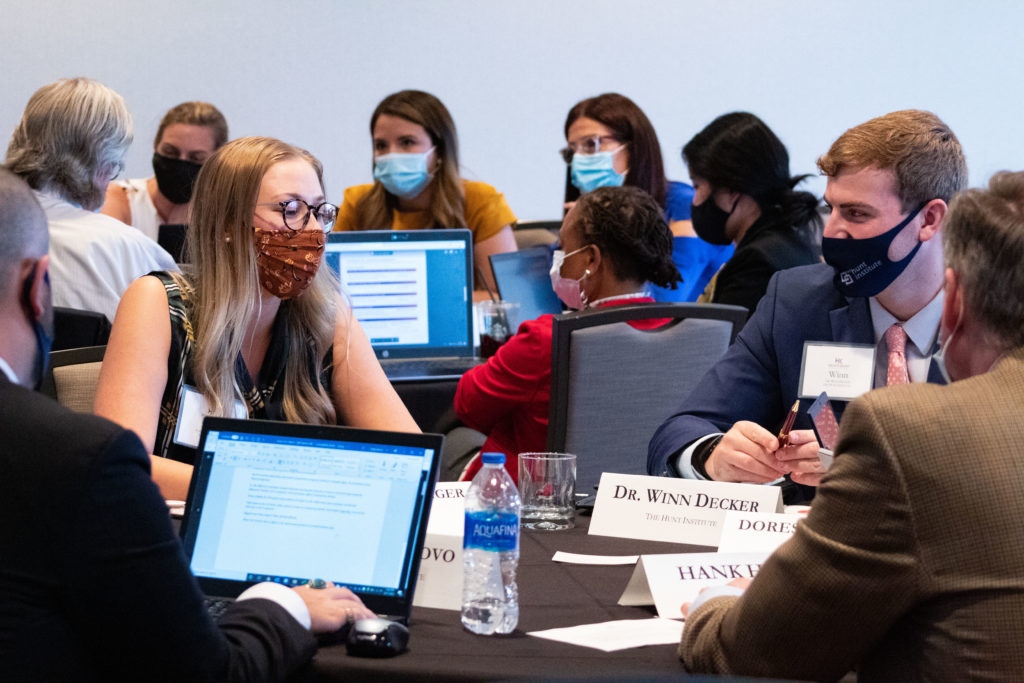
Dr. Decker, one of The Institute’s senior policy analysts, leads Fellows’ staff through discussions.
Staffers who attended the convening with Fellows had a few opportunities throughout the convening to discuss pressing issues in education like preparing high-quality educators, developing state policies to improve education, and ensuring equity in education.
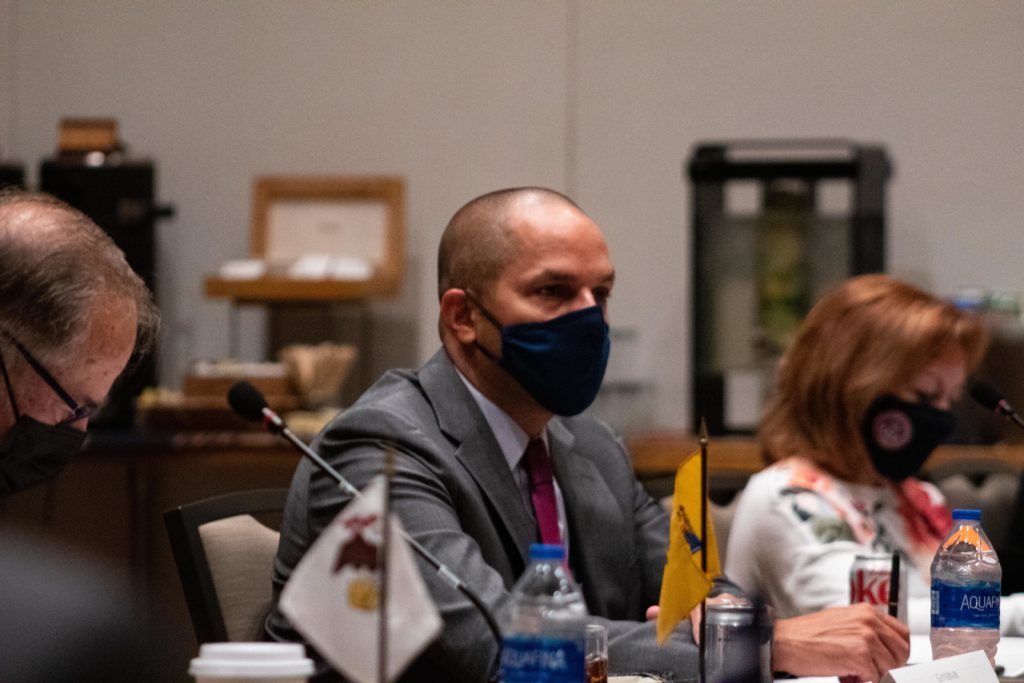
Our President & CEO Dr. Javaid Siddiqi moderated a conversation on the value of career and technical education for students entering the workforce and those pursuing higher education after high school graduation.
During afternoon sessions on the second day, conversations turned to higher education and ways to improve access and attainment. According to Janet Godwin, CEO at ACT, 70% of jobs today require some type of postsecondary degree or credential. Dr. Davis Jenkins, senior research scholar at the Community College Research Center, noted that only 40% of students nationally earn a degree in 6 years. To set students up for success, Nicole Washington, principal at Washington Education Strategies LLC, stressed that preparation for postsecondary education must begin in high school, preferably before the 12th grade.
In opening our session of Career and Technical Education, Jon Schnur, founding CEO of America Achieves, stated, “From an equity and an economic imperative, education beyond high school is necessary to further earnings and potential for so many students.” Joel Vargas, vice president at JFF, joined Schnur in elaborating on strategies for redesigning and aligning the workforce development system so that more citizens have the skills needed for well-paying, in-demand jobs.

Dr. Michael Sorrell (President, Paul Quinn College), James B. Milliken (Chancellor, University of Texas System), and The Honorable Janet Napolitano (Professor of Public Policy, Goldman School of Public Policy, University of California Berkley; Former President, University of California System; Governor of Arizona (2003-2009) discuss adapting and innovating in 2021 on a panel moderated by Stefanie Sanford (Chief of Global Policy and External Relations, CollegeBoard).
During our armchair discussions, panelists discussed how campuses are working to adapt to the needs of today’s students. For example, today’s students are working more to help with the mounting costs of tuition – creating flexibility around coursework could be key to meeting students’ needs.

Governor Tom Kean shares some words on behalf of Governor Hunt, who wasn’t able to make it out to New Mexico for this convening.
For dinner on the second day, Fellows spilt from staffers and attended an outdoor dinner with a beautiful view of the Sandia Mountains.

Fellows, staffers, resource experts, and The Institute staff were invited to take flight in one of New Mexico’s famous hot air balloons.
On the final morning, our hot air balloon ride finally happened! The rides had to be rescheduled earlier in the week due to weather not suited for taking flight.
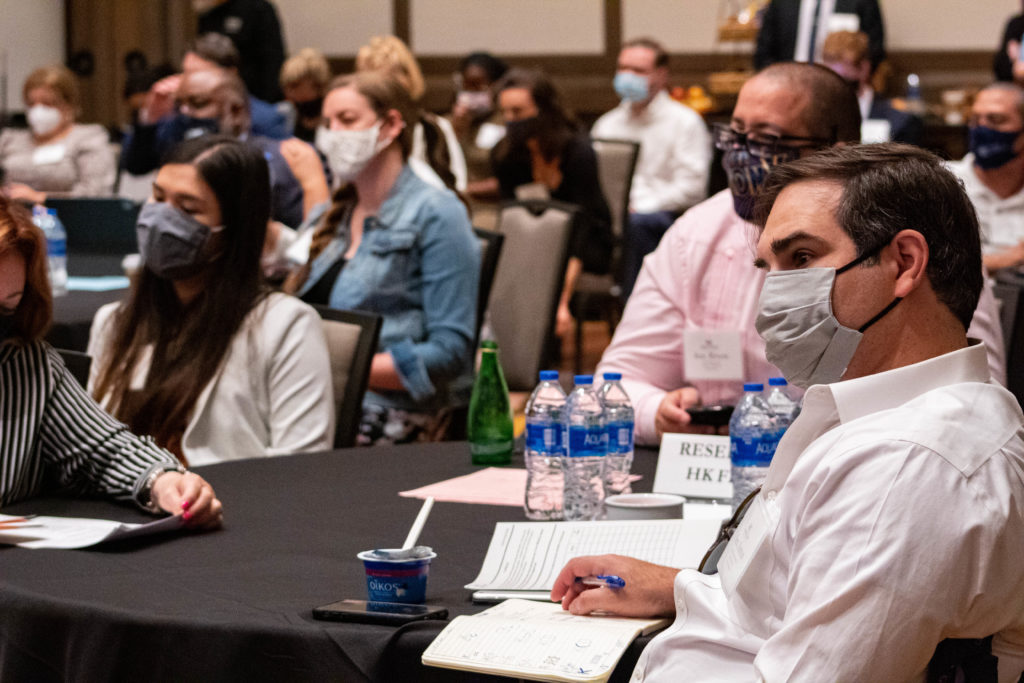
Senator Billie Sutton (SD) listens to a panel discussion.
After breakfast with governors, our Hunt-Kean Leadership Fellows attended one of two smaller panels on higher education completion. There are many strategies for increasing completion rates. For example, improving the transfer process from 2-year to 4-year colleges could be a place to start, according to panelists. However, current data shows that for students who hope to attain a bachelor’s degree after attending a 2-year college, only 30% end up transferring to a 4-year school. Colleges and universities should be working to meet students where they are. Advisors should make an active effort to understand the goals of students, not just what classes they need to take to earn their degree, said Tania LaViolet, associate director at Aspen Higher Ed.
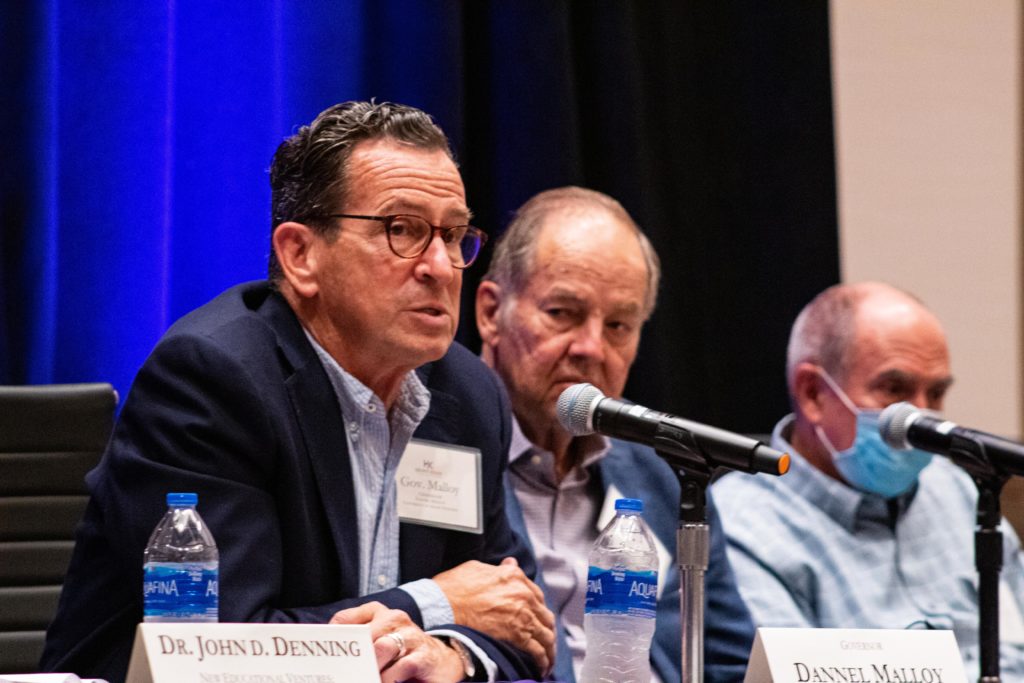
(From left to right) Governors Malloy (CT), Kean (NJ), and Wise (WV)
To wrap up three days of education policy discussions, our Fellows sat down for a panel discussion with John D. Denning, senior advisor at the John M. Belk Endowment, and four former governors. Governor Tom Kean, who makes up one-half of the Hunt-Kean Leadership Fellows, along with Governors Jim Douglas (VT), Bob Wise (WV) and Dannel Malloy (CT).